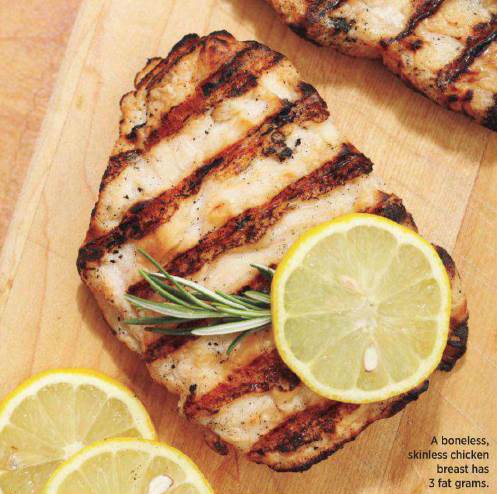If you've packed on some pounds recently,
you may want to rethink that glass of resveratrol-rich wine. New research in
the Australian and New Zealand Journal of Public Health reveals that not only
are all of the beverage's vaunted health benefits negated in those with a body
mass index of 27.5 or higher (in the middle of the "overweight"
range), but partaking at that body weight could increase your risk of heart
disease, cancer, and other conditions. "Previous findings were based on
data that was decades old, when people were generally thinner," explains
lead author Tim Lobstein, Ph.D., a director of policy for the International
Association for the Study of Obesity. "This is a wake-up call that there's
never one magic answer to longevity," says Elizabeth Somer, R.D., a Salem,
OR-based nutritionist and SHAPE advisory board member. "You can't just
focus on research that promotes something appealing like indulging in wine and
run with it.' You could, however, consider the findings an extra incentive to
stay fit.

If
you've packed on some pounds recently, you may want to rethink that glass of
resveratrol-rich wine.
Not-So-Sweet Substitute
The number of Americans with type 2 diabetes
has more than tripled in the last three decades, an epidemic pace that many
experts blame, at least in part, on rising obesity rates. Now another culprit
is emerging, and it affects plenty of people who aren't overweight:
high-fructose corn syrup (HFCS). Although there's no direct proof yet that this
sweetener, found in many processed foods and beverages, causes the disease, a
recent study in the journal Global Health showed that type 2 diabetes is 20
percent more prevalent in countries with a high per capita consumption of HFCS
and the U.S. tops that list. "Unlike other sugars, fructose is metabolized
almost entirely in the liver," explains study coauthor Michael I. Goran,
Ph.D., professor of preventive medicine and co-director of the Diabetes and
Obesity Research Institute at the University of Southern California. "That
makes it more likely to be converted to fat, which can lead to insulin
resistance." To curb your consumption, always check the ingredient lists
on packaged foods, especially common sources like soda, fruit drinks, and
condiments.

Not-So-Sweet
Substitute
Lean and...Easy
Paleo, Blueprint, 5:2... It seems like
there's no end to deprivation diets. But it turns out that one of the easiest
and most effective methods for dropping pounds may be a trick popularized years
ago; Exchange fatty foods for low fat alternatives. According to a review of 33
studies published in the British Medical Journal, making that one simple change
can help you drop about 3.5 pounds without following a structured plan. There's
no need to focus on the numbers: "Simply choosing lower- fat alternatives
consistently leads to decreased weight and a slimmer waist, "says Lee
Hooper, Ph.D., a nutrition researcher at Norwich Medical School in the U.K.
While the report looked at cutting down on any type of fat, other research
shows that specifically curbing saturated fat can also reduce your risk of
heart disease and stroke by up to 14 percent, she says. Some painless ways to
make the switch include opting for leaner cuts of meat, skinless poultry, and
low-fat dairy products, and replacing snacks like cookies and chips with fruit.
The more substitutions you make, the more you'll lose - so start today.

There's
no need to focus on the numbers: "Simply choosing lower- fat alternatives
consistently leads to decreased weight and a slimmer waist